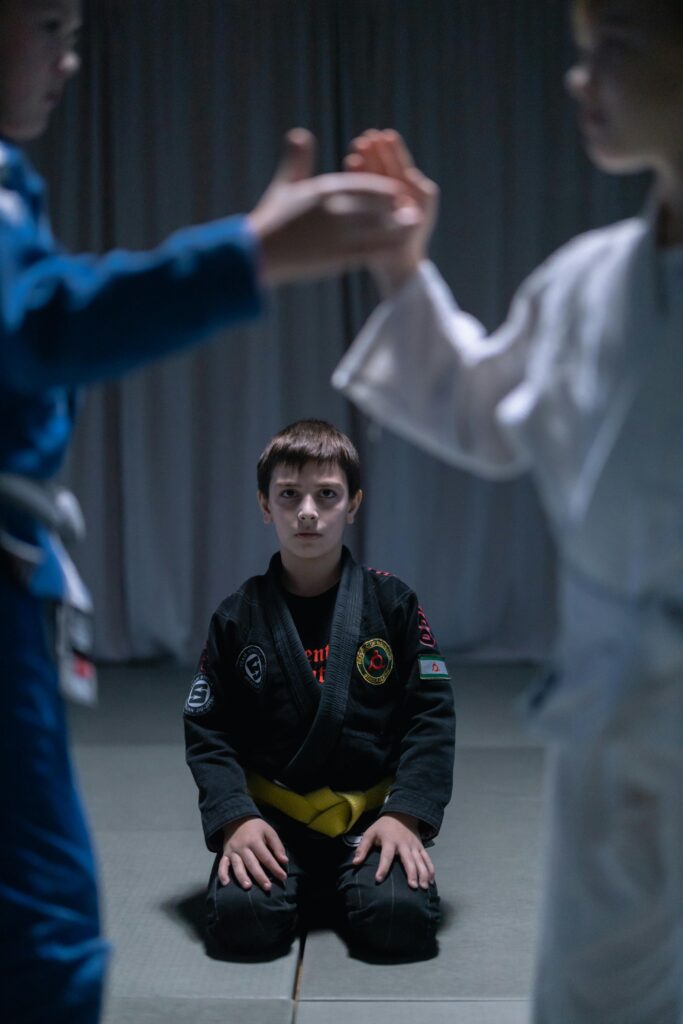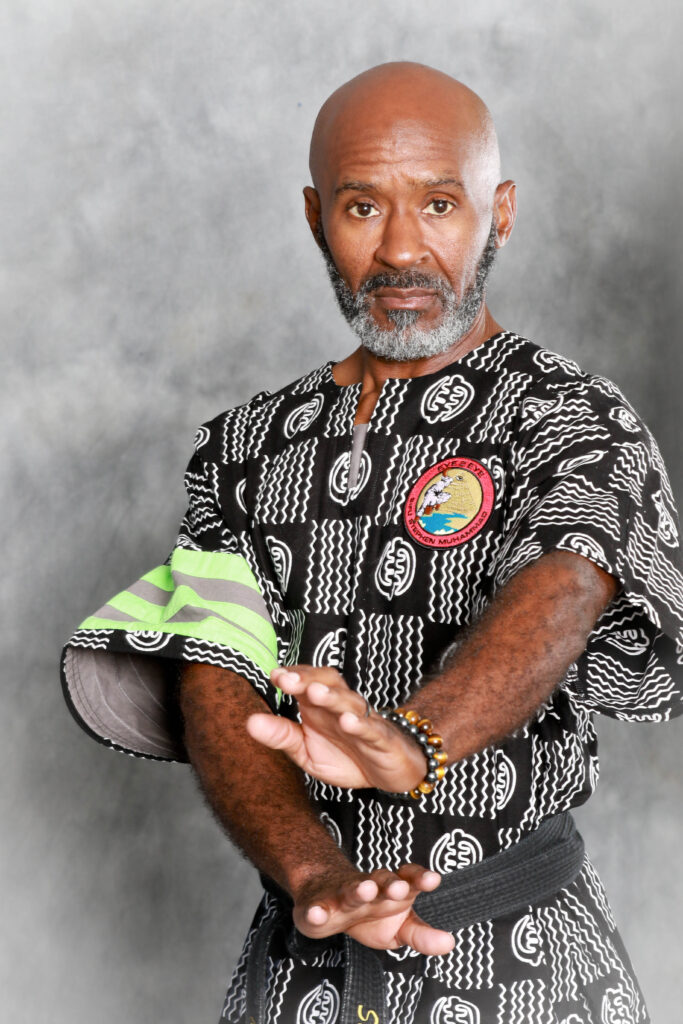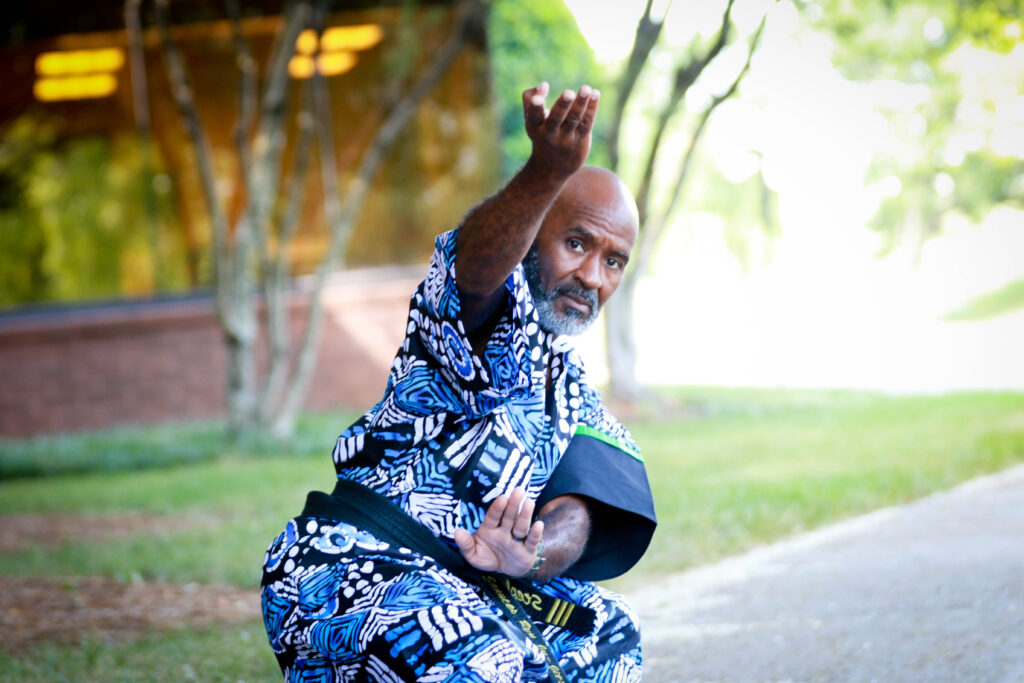It’s amazing to see the positive impact that self-defense training can have on children when they start early. Teaching self-defense at a young age not only gives kids the ability to protect themselves physically, but it also equips them with life skills that extend beyond martial arts.
When children learn self-defense, they develop confidence, discipline, and a strong sense of responsibility for their actions. With so many challenges children face today, introducing them to self-defense classes can make a big difference.
Why Self-Defense is Crucial for Children’s Development
I’ve watched many children transform through self-defense training. It’s like watching a shy caterpillar turn into a confident butterfly. The benefits of self-defense reach deep into their personal growth, shaping them mentally, emotionally, and physically.
Enhancing Physical and Mental Health
Self-defense classes get kids moving, and that’s always a good thing! They learn to balance, coordinate, and strengthen their bodies. But it doesn’t stop there. These classes also engage the mind, teaching kids to think quickly and respond to situations with clarity.
Imagine your child learning to stay calm under pressure or making split-second decisions that keep them safe. That’s the power of early self-defense training. It’s about developing a strong body and a sharp mind.
Building Confidence and Self-Esteem
You know that proud look kids get when they master a new skill? That’s what you’ll see when they start progressing in self-defense. As they learn to execute techniques correctly, their confidence soars.
They’re no longer afraid to speak up or stand their ground because they trust their abilities. This sense of achievement carries over into other areas of their lives, from school to social settings.
They’ll no longer feel intimidated or like a target for bullies. Instead, they’ll be the kids who others look up to for their calm and assured demeanor.
Teaching Discipline and Respect
When kids train in self-defense, they don’t just learn how to protect themselves—they learn when not to. They’re taught to control their emotions and use their skills responsibly.
This sense of discipline instills respect for themselves and others. They know there’s a right time and place for everything, and that’s a lesson that goes beyond the dojo. It shapes how they handle conflicts at school, with friends, or even at home.
Early Self-Defense Education: When to Start and Why
Deciding when to start teaching kids self-defense can be tricky for some parents. But let me assure you, the earlier, the better. Kids as young as 5 or 6 can start learning basic moves and strategies, and as they grow, they can build on these skills, making them second nature.
Tailoring Training to Suit Young Learners
Not every class suits every child. At our center, we take special care to adapt our lessons to fit each child’s age and abilities.
Young children might learn through games that build agility and balance, while older kids can tackle more complex techniques like grappling or escapes. This kind of tailored training ensures that each child is challenged just enough to grow without feeling overwhelmed or disheartened.
Core Benefits of Teaching Children Self-Defense Early
There’s so much more to self-defense than just the physical techniques. It’s about mental preparedness and social adaptability too. Here’s how self-defense shapes a child’s development in profound ways.
Addressing Bullying and Peer Pressure
Bullying is something no parent wants their child to face, but the reality is that many kids encounter it at some point. Self-defense classes teach children to stand up for themselves, not through aggression, but through assertiveness and confidence.
When kids know how to protect themselves, they project a sense of strength that often dissuades bullies from targeting them. They’re more likely to speak up, report the bullying, or de-escalate situations before they become physical.
Improving Problem-Solving and Conflict Resolution Skills
Self-defense isn’t just about reacting to a physical threat. It’s about using your mind to evaluate a situation and find the best way out—whether that means using a self-defense technique or finding a peaceful solution.
Kids learn to think on their feet, assess risks, and make quick decisions. These problem-solving skills are invaluable, both in self-defense and in everyday challenges.
Encouraging Teamwork and Social Interaction
A lot of parents worry that martial arts training might make kids more aggressive or solitary. In fact, it’s quite the opposite! Self-defense classes often involve partnering up and working in small groups, which builds teamwork and communication skills.
Kids learn to support each other, encourage their peers, and even mentor younger students. It’s amazing to see how these classes create a sense of community and camaraderie.
Choosing the Right Self-Defense Program for Your Child
Not all self-defense programs are created equal. You want to find a place that not only teaches effective techniques but also fosters a supportive and inclusive environment.
Here’s what I recommend looking for when you’re exploring self-defense classes for your child.
Key Features to Look for in a Program
Make sure the instructors are experienced and certified to work with children. Safety should be their number one priority, followed by teaching proper techniques.
Look for programs that incorporate character-building elements, such as our Young Tiger Class, which emphasizes not just flexibility and respect but also strategic thinking.
Different Types of Self-Defense Classes Available
There are various types of classes available, depending on what you’re looking for. Jiu-Jitsu classes are fantastic for teaching ground defense and leveraging body weight, which is particularly useful for kids who might face larger opponents.
Eye2Eye Combat offers excellent youth self-defense classes that incorporate Jiu-Jitsu, Aikido, or Bujutsu basics so that students can learn practical skills right away.
Importance of an Inclusive and Supportive Environment
Children thrive in environments where they feel welcomed and valued. Make sure to choose a class where the instructors encourage all students, regardless of their background or ability level. This positive reinforcement is crucial for keeping kids engaged and motivated.
How Self-Defense Training Transforms Children’s Lives
Over the years, I’ve seen how self-defense can positively shape a child’s character and future. It’s not just about learning to block a punch or escape a hold. It’s about preparing them for real-world scenarios and giving them tools to succeed in life.
Developing a Sense of Responsibility
When kids learn self-defense, they’re taught that they have a responsibility to use their skills wisely. This understanding fosters a strong sense of personal responsibility that influences their behavior in all areas of life—from schoolwork to friendships.
Coping with Stress and Anxiety
Children deal with stress too, whether it’s from school, friendships, or family situations. Self-defense offers an excellent way for them to manage this stress. The physical activity releases pent-up energy and anxiety, while the mental discipline helps them stay calm and focused.
Plus, knowing they can protect themselves if necessary gives them a sense of security that’s hard to come by otherwise.
Preparing Children for Real-World Scenarios
You hope they’ll never need to use these skills in a real confrontation, but if they do, they’ll be ready. Self-defense training equips children to handle themselves confidently in various situations, whether it’s a physical threat, bullying, or even a challenging social interaction.
Parental Involvement: Encouraging and Supporting Your Child’s Journey
You play a crucial role in your child’s self-defense journey. Your encouragement and support can make all the difference in how committed they are to their training.
Being an Active Participant in Your Child’s Training
Attend their classes when you can, practice techniques with them at home, or simply cheer them on. Show interest in what they’re learning and ask them to demonstrate new techniques. This involvement shows them that you value their efforts and boosts their motivation.
Understanding the Impact of Your Support
When children feel supported by their parents, they’re more likely to stick with the program. They’ll develop a love for martial arts and appreciate the time you spend being part of their journey.
Discover How Eye2Eye Combat Can Help Your Child Thrive
Wrapping up, it’s clear that teaching children self-defense early builds the kind of character, confidence, and resilience that stays with them for life. Through every kick, block, and stance, they’re not just learning how to protect themselves—they’re growing into stronger, more self-assured individuals.
If you want your child to experience these life-changing benefits, it’s time to explore our youth self-defense classes at Eye2Eye Combat. Our programs are designed to be safe, fun, and enriching, helping young warriors develop both inside and outside the dojo.
Let’s work together to give your child the tools they need to face the world with courage and clarity. Check out our class schedule and bring your child in for a free first session to see how we can make a difference—starting today!
FAQs
Why is learning self-defense important?
Learning self-defense is essential because it gives you the ability to protect yourself and boosts your confidence in handling tough situations. It’s about more than just knowing how to respond physically—it’s about building mental resilience and awareness.
You gain the skills to stay calm under pressure and make smart decisions, which is invaluable both in and out of self-defense scenarios.
What is self-defense and its importance?
Self-defense is the practice of protecting yourself from harm using physical and mental strategies. Its importance lies in the way it empowers you to stay safe and confident in various situations. When you understand self-defense, you’re not just preparing to handle physical confrontations—you’re learning to stay aware of your surroundings, avoid danger, and approach challenges with a clear head.
What do you teach kids about self-defense?
I teach kids that self-defense is about using their bodies and minds to stay safe, not just about fighting back. They learn to be aware of their environment, handle conflict calmly, and use self-defense techniques only when absolutely necessary. It’s about building confidence, respect, and the understanding that true strength means knowing when not to use force.
How does self-defense help build confidence?
Self-defense training helps build confidence by teaching you to trust your instincts and abilities. As you master new techniques and see your progress, you start believing in yourself more.
This newfound confidence isn’t just about handling physical situations—it influences how you approach life, making you more assertive and less anxious in everything from school or work to social interactions.
Is self-defense suitable for all ages?
Absolutely! Self-defense can be adapted to suit people of all ages, from young children to seniors. The focus and techniques might vary, but everyone benefits from learning how to protect themselves. It’s never too early or too late to gain these valuable skills, build strength, and feel more secure in your daily life.





